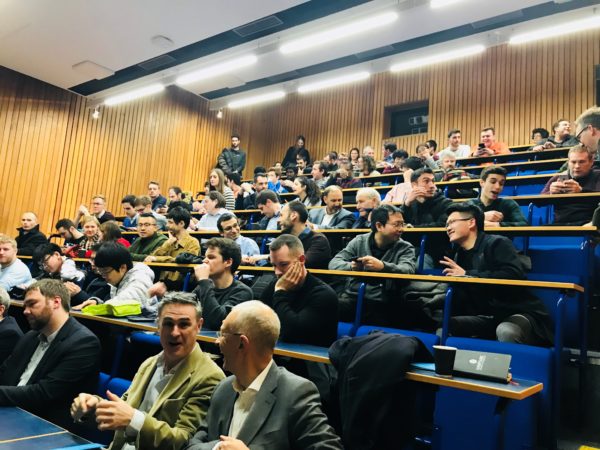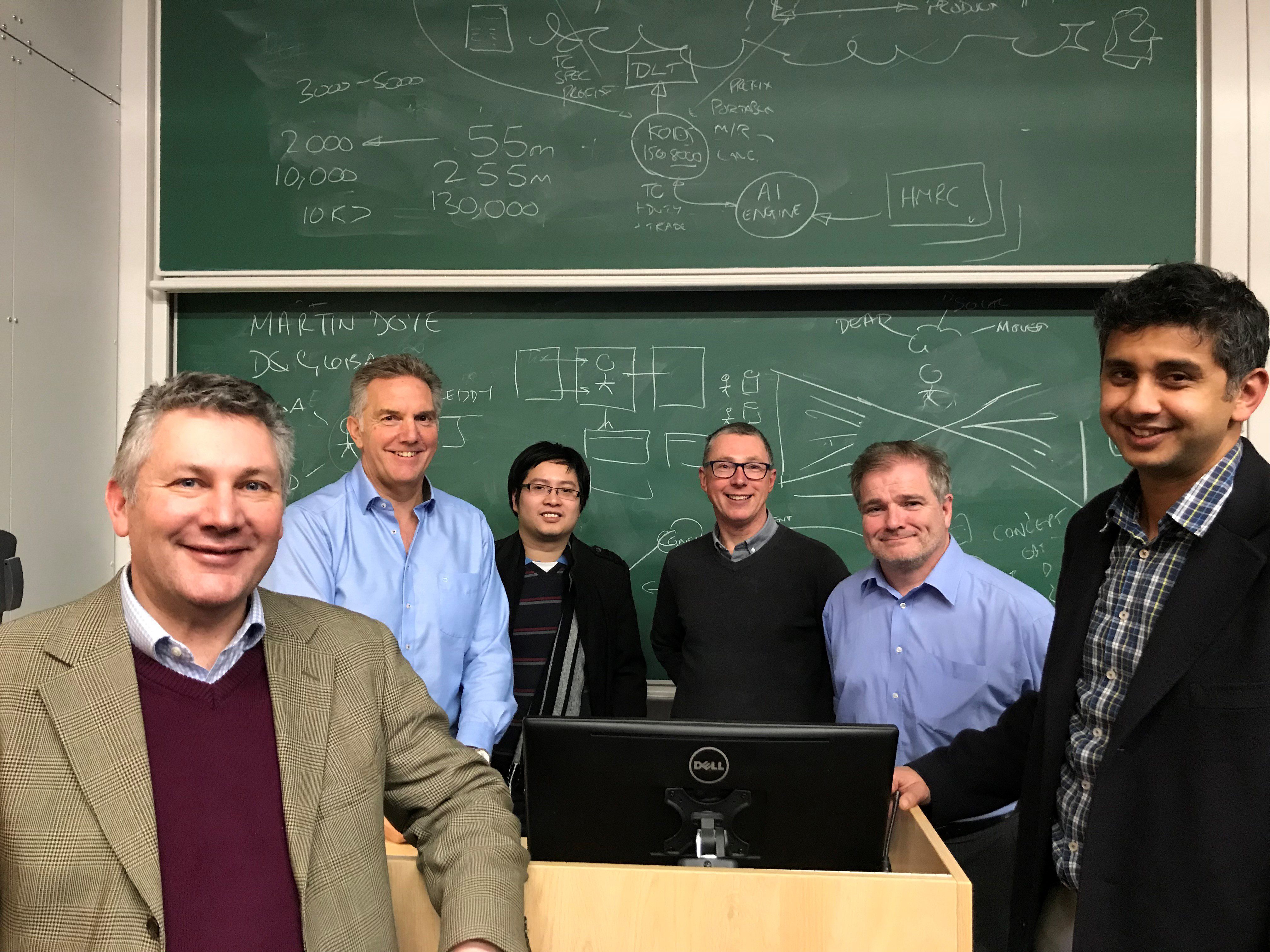Against this backdrop, the blockchain story is compelling for companies which need authoritative data they can trust implicitly, without costly errors made along the supply chain.
Fresh impetus is also being given to blockchain adoption with news that output in the UK has seen the fastest rise in new orders in 23 years, following a pick-up in domestic orders and abroad.
Richard May, Oxford Innovation’s in-house innovation director for Hampshire, organised the event with fellow guest speakers Dr Gopal Ramchurn, Associate Professor and director of the Centre for Machine Intelligence at the University of Southampton, and Dr Long Tran-Thanh, lecturer in Computer Science at the university.
Both professors outlined university prowess and focus on AI and blockchain.
Dr Ramchurn said: “The real value of Blockchains will be unlocked if companies are able to harness AI-based solutions to develop smart contracts that can automate very complex multi-party decision making. The Centre for Machine Intelligence aims to bring together the expertise required to develop such intelligent services of the future.”
Dr Tran Thanh said: “The use of AI and machine learning in a wide variety of contexts raises several ethical issues around the use of personal data and autonomous decision making on our behalf. Addressing these challenges will be key to the adoption of the technology.”
Afterwards, Richard said: “It’s great to witness the relentless uncovering of new applications for DLT and how it empowers a more trustworthy AI. We are fortunate to have three exciting businesses in our Fareham innovation centre that have the vantage point and appetite to lead the way in big data innovation.
“Together they cover three key areas of authentic data – for individuals, matter, and measured activity.
“It is fantastic to see these peer companies embrace the opportunities together as a DLT sector cluster in this expanding new centre and strengthen ties with the accessible University of Southampton.”
Bosses at the three firms from Fareham Innovation Centre explained to the audience the commercial opportunities afforded by the technology.

Software entrepreneur Simon Towner is the chief executive of start-up KOIOS Master Data, an online community which enables manufacturers, distributors, suppliers and MRO organisations to easily collaborate by searching for, uploading and downloading catalogue items and product specifications in accordance with the ISO 8000 international data quality standard.
Martin Doyle is the chief executive and founder of DQ Global, a data quality software specialist.
As a global market leader recognised for its extensive knowledge, leading-edge technology and unique methodology for delivering enterprise-wide data solutions, DQ Global’s work includes consultancy for the impending General Data Protection Regulations (GDPR).
Ideally, an individual’s request not to be marketed to under GDPR would be placed on blockchain so an audit trail can be easily accessed if there is a compliance issue.
Russ Cole is the founder and chairman of the ESL Group, which designs and manufactures Internet of Things (IoT) solutions in banking security, food logistics and assisted living.
Blockchain, with the aid of artificial intelligence, would help validate IoT solutions, he said.
An estimated 75 billion internet-enabled devices are predicted by 2025, with £16.8 billion spend on adult social care in the UK by local authorities – IoT sensors and data could help with efficiencies.
Last November a report by the House of Lords was published, entitled Distributed Ledger Technologies [DLT] for Public Good: leadership, collaboration and innovation.
In the foreword, Lord Holmes of Richmond wrote: “With the right mix of leadership, collaboration and sound governance, DLT offers a step change for service delivery in both the public and private sectors.
“By reducing data fragmentation and enhancing traceability and accountability, DLT promises cost‐savings and efficiencies on a scale sufficient to impact national finances. “
According to the report, areas of particular opportunity for the UK include border control, customs, trade and immigration; national security, criminal investigations, police and public safety; taxation and benefits payments; health assurance, patient record management, drug safety and treatment accountability; food standards and safety, traceability and accountability; privacy, cybersecurity and counter‐fraud and public procurement, contracting, payments, visibility of spending and asset traceability






